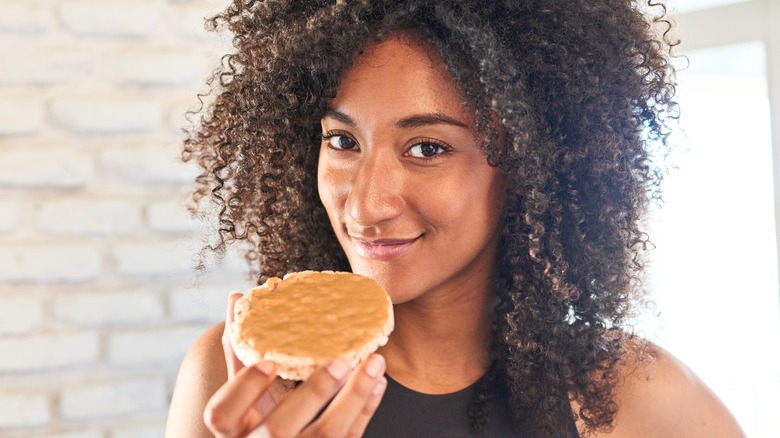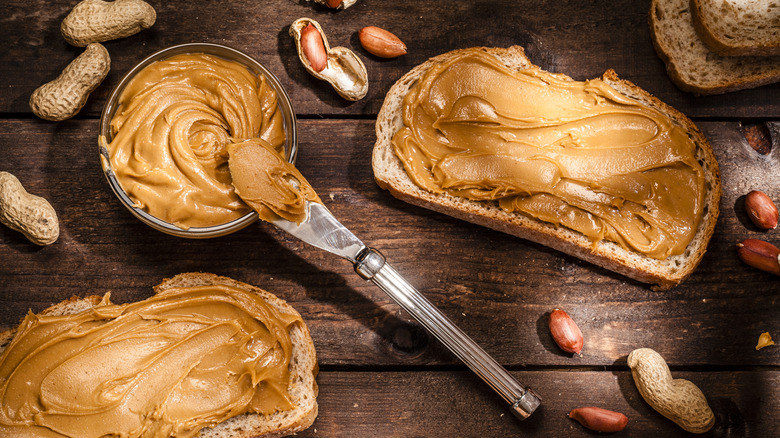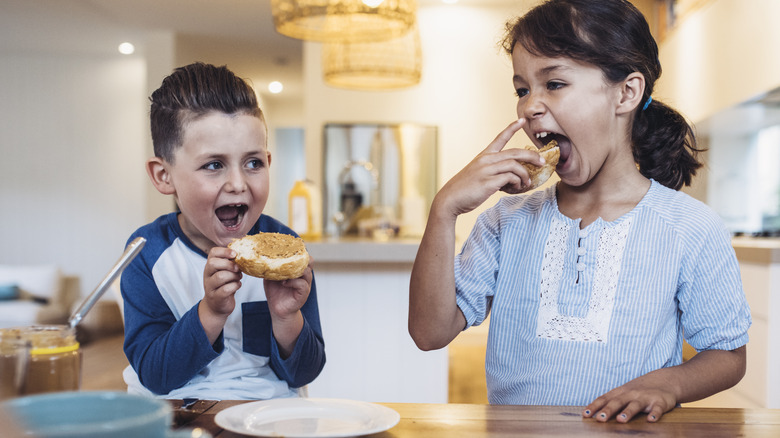Why You Should Avoid Eating Unprocessed Peanut Butter At All Costs
Peanut butter is that perfect food that goes with just about anything. It partners well with a juicy apple to make a great afternoon snack. You can stir it with milk and red curry paste for a delicious sauce. And yes, you can spread it between two slices of bread to remind you of your childhood. Peanut butter is such a common staple in the United States that 9 in every 10 households have a jar in their cupboards, according to a 2022 review in Foods.
Peanut butter is good for you if you stick to products with limited ingredients, such as peanuts and maybe a little bit of salt. Smucker's natural peanut butter, for example, only has these two ingredients while being free from added sugar, hydrogenated vegetable oil, or diglycerides. Buying peanut butter from a major manufacturer or U.S. retailer means the product and the manufacturer must adhere to strict food safety regulations. Developing countries and unregulated markets have issues with food safety, particularly with Salmonella and aflatoxins. That's why you'll want to avoid peanut butter made in developing countries or farms that aren't subjected to safety testing.
Salmonella and aflatoxin B1 in peanut butter
Salmonella contamination mostly occurs with chicken and eggs, but these microbes can survive in peanut butter despite its low moisture content. For the most part, peanut butter is generally safe from Salmonella after it moves through the production chain. The dry roasting process itself kills off any possible Salmonella. If any peanut butter becomes contaminated, it's usually after the peanuts are roasted. You might remember the Jif peanut butter recall in 2022 after several people got Salmonella infections after eating peanut butter from a Smucker's facility in Kentucky. Salmonella can be pretty stubborn and can survive in a contaminated jar for the shelf life of the peanut butter because peanut butter is low in moisture and high in fat.
Aflatoxin B1 is considered carcinogenic and is often found in corn and peanuts, particularly if the conditions in which they are harvested are poor. The aflatoxins can contaminate the peanut butter if the processing standards are poor or unregulated. Aflatoxin contamination has been a problem in developing countries. The U.S. Food and Drug Administration tests raw peanuts and peanut butter for aflatoxins, which is why there hasn't been an aflatoxin outbreak in the United States (per the National Cancer Institute).
Being safe about your peanut butter
Because of the strict regulations on food safety, the University of California Agriculture and Natural Resources says you're pretty safe eating peanut butter sold in retail stores and produced by major manufacturers. Nervous about grinding your own peanut butter at Whole Foods? Those peanuts come from Hampton Farms, which is subject to the same testing standards to avoid aflatoxins. You've probably heard that you should properly store natural peanut butter in the refrigerator like a perishable food so Salmonella or other bacteria won't develop. For the most part, your dried nuts shouldn't be a concern for Salmonella, but refrigerating or freezing your peanut butter won't kill Salmonella.
If you decide to make your own nut butter from your homegrown nuts, you'll need to practice good hygiene. Wash your hands before touching the nuts, then crack open the shells. Then you can wash the unshelled nuts. You can grind them right away or refrigerate them in a clean, moisture-free container. To roast your peanuts before grinding, Hampton Farms suggests arranging them on a baking sheet and baking for 20 to 25 minutes at 350 degrees Fahrenheit.



